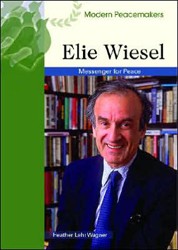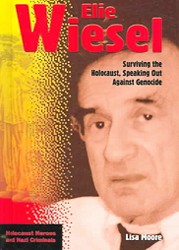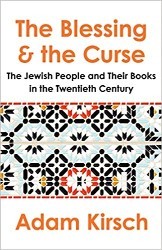This comprehensive critical survey of Elie Wiesel’s profound and variegated achievement goes beyond previous anthologies, as Wiesel has gone beyond the scope of his early body of work. One of the great merits of the collection is the compactness of the essays. Not one goes on longer than it needs to. In growing a book out of what must have been a powerhouse conference, the editors have not allowed too much growing by way of over-elaboration.
The twenty-four essays are grouped into five parts: “Bible and Talmud,” “Hasidism,” “Belle Lettres,” “Testimony,” and “Legacies.” Though these groupings are useful courtesies for the reader, they in fact underscore the interrelatedness of Wiesel’s concerns and modes of expression. “Legacies” could just as well have been named “Pedagogy,” and an essay not now placed in that section would fit there just as well as the ones already there.
Most of the essays take great pains to establish a critical, historical, or theoretical context – to create a lens through which to view Wiesel’s contribution. In a few cases, the context dwarfs the commentary that is directly focused on Wiesel. Such is the academic habit. Nonetheless, we come out of this chorus of scholarly voices with a much-enriched understanding of Wiesel’s place in the cultural pantheon of the twentieth century. And not only the Jewish spectrum.
Wiesel the student and scholar (of Torah, Talmud, history, philosophy, and literature); Wiesel the dreamer and fabulist; Wiesel the voice of conscience through and beyond the Holocaust; Wiesel the mentor; and Wiesel the public figure all get respectful, revealing, and profound attention. There are other Wiesel paradigms as well. Some essays put a particular work under the microscope, while others trace an issue or stance through several. Some measure Wiesel against other writers. There is no getting our minds entirely around this immense figure, but the editors come pretty close.
This book is an absolute requirement for all university libraries and Jewish institutions; a pleasure for any educated reader.
Chapter notes, introduction, notes on contributors.
Related: Learn about the painting on this book’s coverPhilip K. Jason is professor emeritus of English at the United States Naval Academy. A former editor of Poet Lore, he is the author or editor of twenty books, including Acts and Shadows: The Vietnam War in American Literary Culture and Don’t Wave Goodbye: The Children’s Flight from Nazi Persecution to American Freedom.





